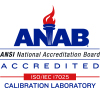 Posted on
Posted on 
In the dynamic landscape of the pharmaceutical industry, the utilization of data loggers has emerged as a powerful tool, revolutionizing the monitoring and management of critical parameters. These devices offer an array of benefits that contribute to the preservation of product quality, efficacy, and safety throughout the storage and transportation processes. Let’s take a look at the top three ways data loggers have enhanced pharmaceutical monitoring.
- Real-Time Monitoring – By enabling real-time monitoring of critical parameters, data loggers play a vital role in identifying and addressing any deviations from acceptable ranges promptly. This proactive approach safeguards pharmaceutical products against potential damage and ensures that their quality and efficacy remain uncompromised.
- Accurate & Reliable Data – Data loggers provide an accurate and reliable record of the conditions during storage and transportation. This record can be used to demonstrate compliance with regulatory requirements and to provide evidence of the quality of the products. It also helps to identify any potential issues in the supply chain, which can be addressed promptly to minimize any negative impact on the products.
- Reduce the Risk of Human Error – A significant advantage of utilizing data loggers lies in their ability to reduce the risk of human error. These devices are designed to continuously monitor parameters and automatically record data, greatly minimizing the possibility of errors. This automation not only saves valuable time and resources but also alleviates the tediousness and potential inaccuracies associated with manual monitoring and recording processes.
Data loggers offer a cost-effective and user-friendly solution for pharmaceutical monitoring. Available in various sizes and configurations, they can be tailored to the specific requirements of the pharmaceutical products being monitored. Their durability and ability to withstand harsh environmental conditions make them well-suited for the demanding needs of the pharmaceutical industry.
The integration of data loggers into pharmaceutical monitoring represents a significant advancement that has revolutionized the industry. Through real-time monitoring, accurate records, and error reduction, data loggers play a pivotal role in maintaining the quality and effectiveness of pharmaceutical products during storage and transportation. With their time-saving and cost-effective nature, data loggers have become an indispensable tool in ensuring the safety and reliability of pharmaceuticals. As the industry continues to evolve, it is expected that data loggers will undergo further advancements and improvements, solidifying their vital role in pharmaceutical monitoring.
For more information on data loggers for the pharmaceutical industry, or








